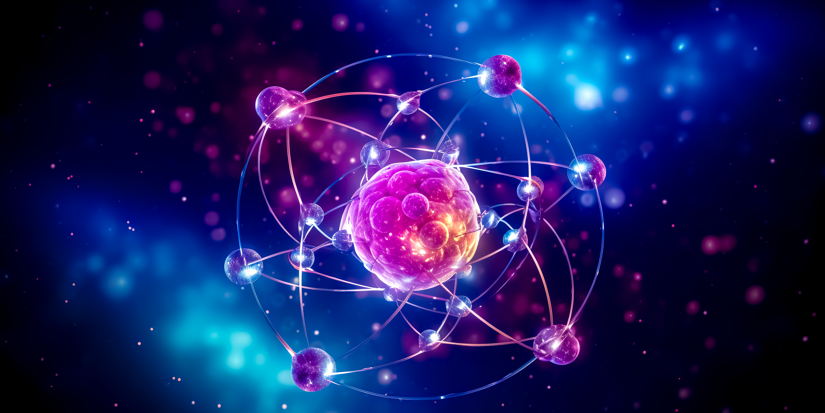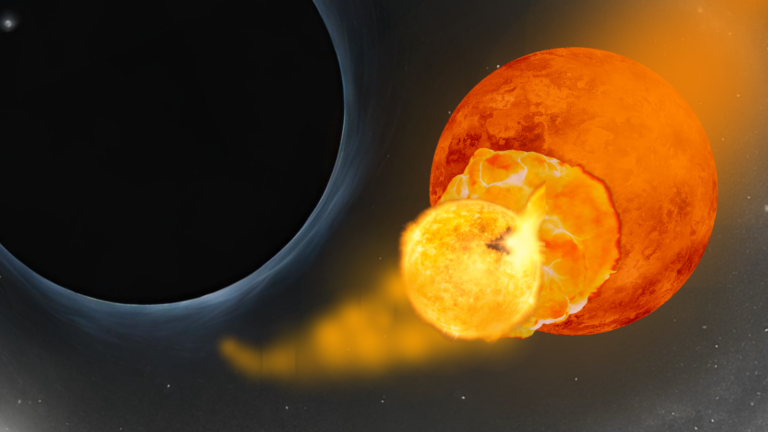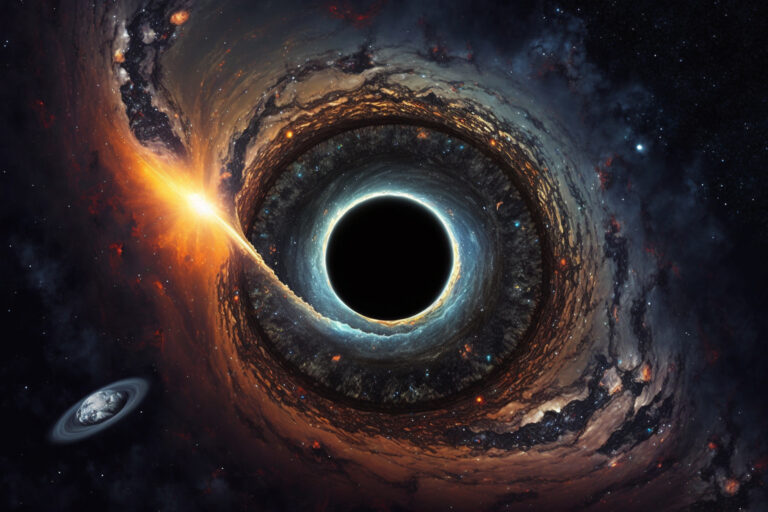
Black holes: the cosmic monsters that eat stars, bend time, and defy our understanding of physics. For decades, they were thought to be eternal prisons—once something crosses the event horizon, it’s gone forever. The question remains…Are Black Holes Eternal? Are black holes truly immortal?
Surprisingly, no. According to modern physics, black holes eventually evaporate—and what happens in their final moments leads us deep into one of the greatest mysteries in science: the black hole information paradox.
Hawking Radiation: The Slow Fade to Nothing
Never Miss A Story
In the 1970s, physicist Stephen Hawking stunned the world by showing that black holes aren’t completely black. Due to quantum effects near the event horizon, black holes emit tiny amounts of thermal radiation—now called Hawking radiation.
This radiation carries away energy, which means the black hole loses mass over time. It’s a painfully slow process for large black holes (we’re talking longer than the current age of the universe times a trillion trillion trillion…), but in theory, even the most massive black holes will eventually evaporate completely.
The smaller the black hole gets, the faster it evaporates. In its final moments, it may emit a burst of energy—essentially a cosmic explosion.
But this brings up a huge problem.
The Black Hole Information Paradox
In quantum mechanics, information can never be truly destroyed. If you burn a book, the information it contained is still preserved in the atoms and radiation—at least in theory.
But black holes don’t seem to play by those rules.
If you throw a spaceship (or anything else) into a black hole, all details about it—its structure, contents, even the quantum information—seems to be erased. When the black hole evaporates, the Hawking radiation that comes out is completely featureless. No trace of what went in.
So… where did the information go?
If it’s lost, that breaks quantum physics. If it’s preserved, how?
Possible Answers (and Wild Ideas)
1. Hidden in the Hawking Radiation
Some physicists believe that Hawking radiation isn’t truly random—subtle correlations might encode the original information. This means the black hole doesn’t destroy data; it just scrambles it beyond recognition. Over time, the information leaks out, pixel by pixel.
2. The Holographic Principle
One mind-bending idea is that the universe—and everything in it—might be a hologram. According to this theory, all the information about what falls into a black hole is stored on its event horizon, like a 2D surface encoding a 3D volume.
From this perspective, nothing is truly lost. It just looks that way from inside our limited viewpoint.
3. Black Hole Remnants
Some theories suggest black holes never fully vanish. Instead, they shrink down to a tiny, stable object—called a Planck-mass remnant—that holds all the original information. The catch? These remnants would need to store almost infinite data in almost no space. It’s a strange solution, but still on the table. Are Black Holes Eternal?
4. Firewalls: The Death of Smooth Spacetime
A controversial fix involves firewalls—blazing regions of intense energy just inside the event horizon. They would destroy anything falling in, and possibly preserve information in the process. Problem is, this would break Einstein’s general relativity at the edge of the black hole—something many physicists aren’t comfortable with.
5. Escape Routes: Wormholes and Baby Universes
What if black holes don’t destroy information—they just send it… elsewhere? Some theories propose that information escapes through wormholes, or gets deposited into baby universes spawned by the black hole. It’s pure speculation—but wildly compelling.
The Final Evaporation
If black holes really do evaporate completely, what happens at the very end? Nobody knows for sure.
The final phase—when the black hole is tiny and radiating furiously—requires a quantum theory of gravity, something we don’t yet have. It could be explosive. It could be a gentle fade. Or it could be something far stranger, like a transition into a white hole: a theoretical object that spits out matter and light but can’t be entered.
Some models from loop quantum gravity even suggest black holes “bounce” and reverse, turning into white holes that slowly release their contents over time. Are Black Holes Eternal?
Sci-fi? Maybe. But these ideas are being seriously studied by physicists right now.
A Universe with No Black Holes
If the universe keeps expanding and cooling, all black holes will eventually evaporate. What’s left behind? A dark, cold, and nearly empty cosmos—filled with faint radiation, dead stars, and lingering mysteries.
And yet, the fading whisper of a black hole’s final moment might still carry the echoes of everything it once consumed.
Nothing in physics feels quite as poetic—or as profoundly strange.
What’s New?
- First Images From The Vera C. Rubin Observatory
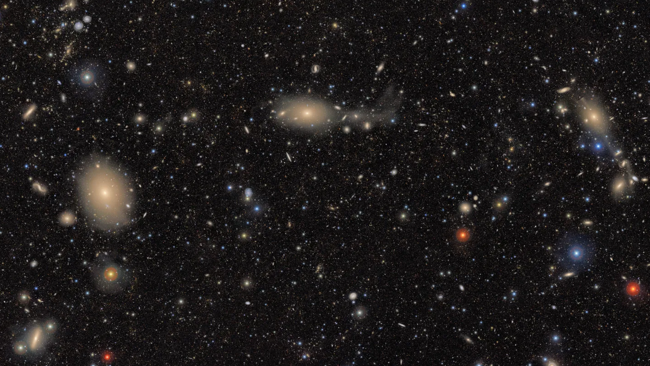
- What Effects Do Solar Flares Have On Our Power Grids?
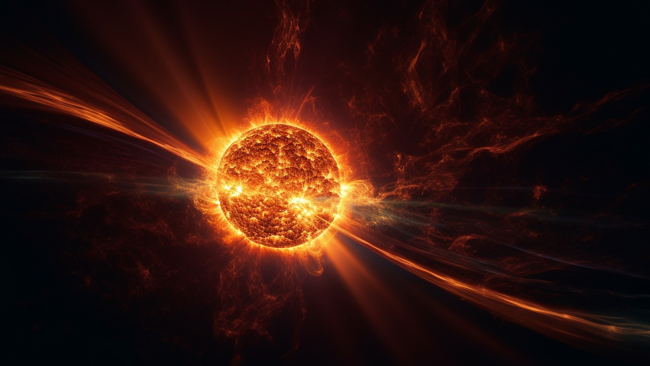
- What’s the Difference Between a Galaxy and a Globular Cluster?
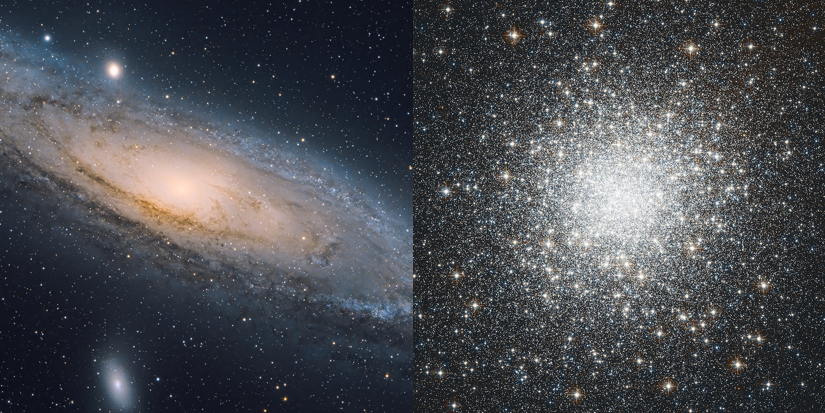
- Are Black Holes Eternal? The Strange Fate of the Universe’s Darkest Objects

- Cannibal stars at the heart of the Milky Way stay young in a gruesome way
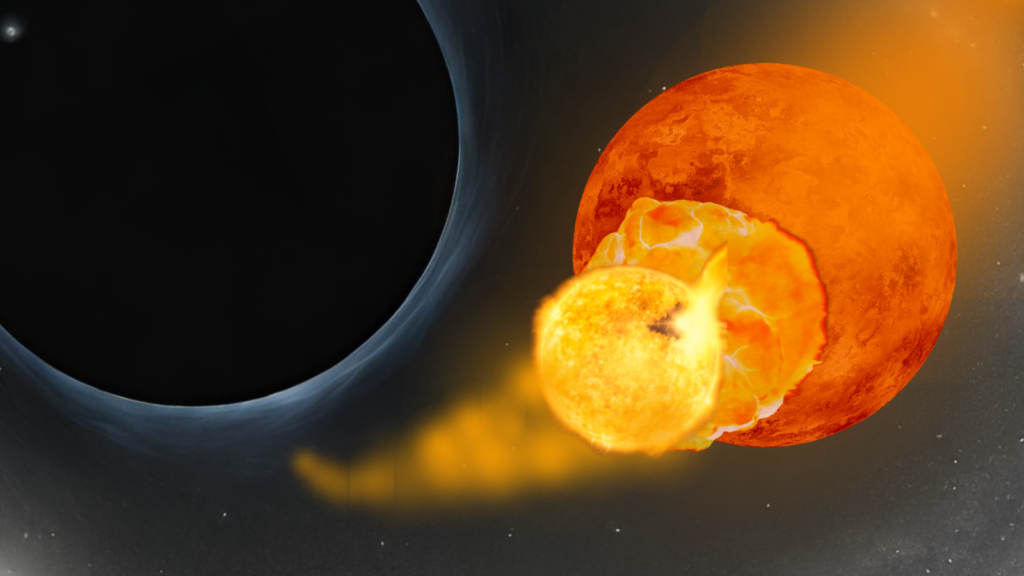
- Multi-Particle Entanglement Is A Complex World
